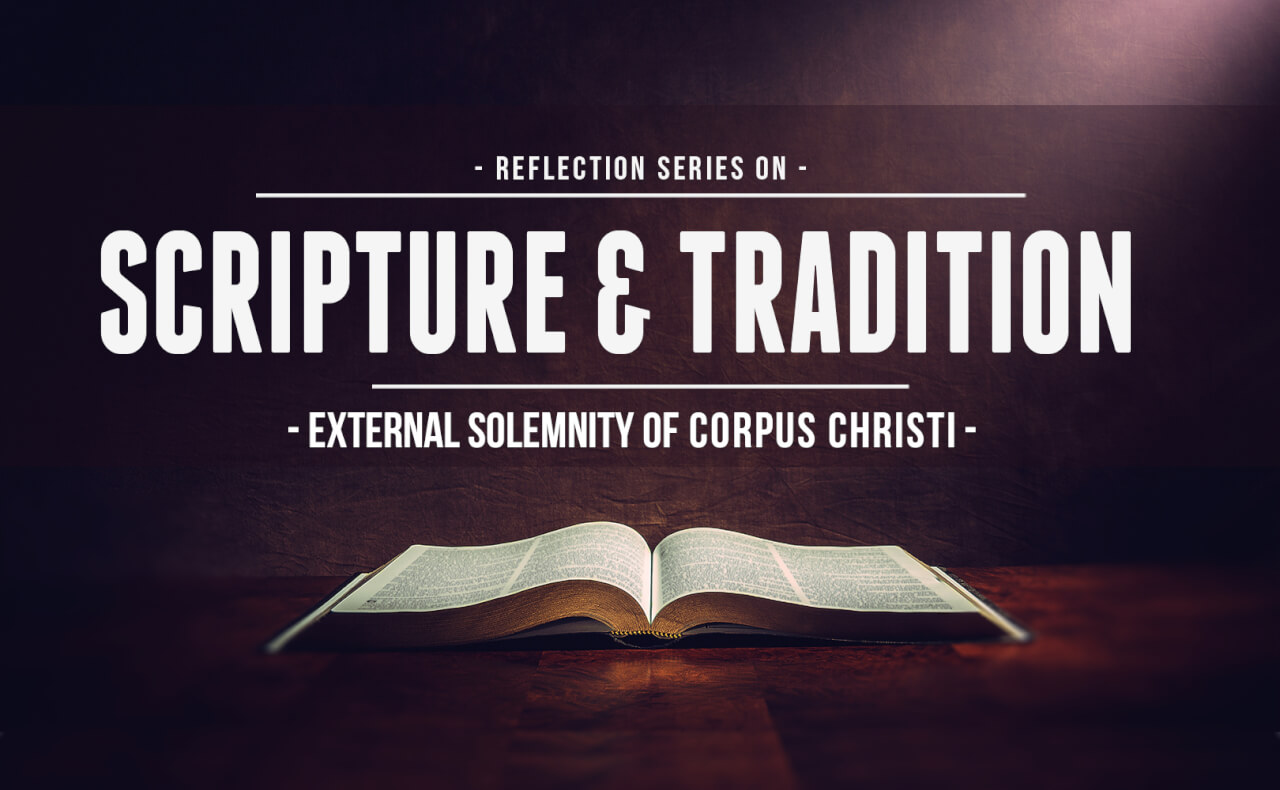(Note: In regions outside the USA, this Sunday is celebrated as the Second Sunday after Pentecost.)
Epistle: 1 Corinthians 11:23-29
Gospel: John 6:56-59
O God, Who in this wonderful sacrament has left us a memorial of Thy passion: grant us, we beseech Thee, so to venerate the sacred mysteries of Thy Body and Blood, that we may ever perceive within us the fruit of Thy redemption.
– From the Collect for Corpus Christi
In the past generation the Catholic Church in the United States has transferred a few of her Holy Days to the closest Sunday. The most (in)famous example of this is Ascension Thursday, which is now celebrated on the following Sunday in most dioceses in America. This practice is problematic—another unfortunate example of how the modern Church places secular priorities (work, convenience) over spiritual priorities.
However, this Sunday traditional Catholics in the United States will celebrate the “External Solemnity of Corpus Christi,” which at first glance appears to stem from the same problematic practice. Isn’t this just transferring a feast to a more convenient date? No. An “external solemnity” is a pastoral provision that allows a parish to celebrate Mass for an important feast day on another day in addition to celebrating it on the proper day. So Corpus Christi is still celebrated on the Thursday after Trinity Sunday, but a priest may say Mass for Corpus Christi on the following Sunday as well. The Sunday is still the Second Sunday after Pentecost (as can be seen from the fact that the Divine Office for the day remains for the Second Sunday), but Mass may be the Mass for Corpus Christi. This pastoral provision was granted to the United States by Pope Leo XIII in 1885.
The granted provision demonstrates the importance of this great Feast. Corpus Christi honors the Most Holy Body and Blood of Christ, the Eucharist, which is the lifeblood of the Church. It is our food for eternal life and the object of our adoration and worship. There is on this earth no greater gift that we can receive, and no greater miracle we can witness, than the Most Blessed Sacrament.
The reverence due the Eucharist has been an integral part of the Church since her beginning. St. Paul writes in today’s Epistle that “whosoever shall eat this bread, or drink the chalice of the Lord unworthily, shall be guilty of the body and of the blood of the Lord” (1 Cor 11:27). The Apostle’s words demonstrate that the Eucharist is not merely a symbol of Our Lord’s body and blood, It truly is His body and blood, sacramentally present under the appearance of bread and wine. St. Paul knew this, and he understood that to profane the Eucharist was a deeply sacrilegious act, deserving of God’s wrath (cf. 1 Cor 11:30). St. John Chrysostom writes, “Someone who profanes the supper is like a priest who pours the blood out, making the death appear to be a slaughter and not a sacrifice. It is like those who pierced Jesus on the cross” (Homilies on the Epistles of Paul to the Corinthians 27.6). To receive the Eucharist unworthily is to be the Roman soldier who nails the Lord to the Cross.
In today’s Gospel, Our Lord tells us that the one who receives the Eucharist (worthily) “shall live for ever” (Jn 6:59). This at first glance seems to be opposed to St. Paul’s words, that the Eucharist is a participation in the death of the Lord (1 Cor 11:26). Death and life are opposites, so how does participation in death bring about eternal life? That is the mystery of the Cross: it is only through our participation in the death of Jesus on the Cross that we find life in Him. The Eucharist is that means by which we participate in His death, and thereby it is the means by which we can receive eternal life.


